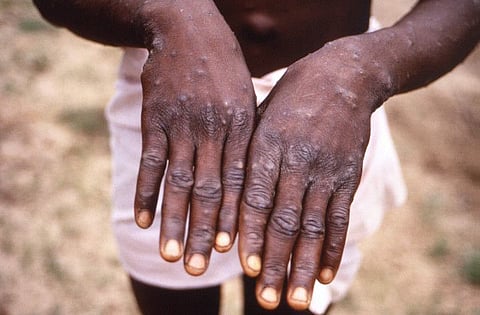Africa officials urge readiness for monkeypox vaccinations, fair access
1,597 suspected monkeypox cases in 2022; WHO not recommending mass vaccination for now

Dakar: The World Health Organisation is procuring thousands of monkeypox tests for Africa and working to ensure the continent has fair access to vaccines should the need arise, WHO Africa Director Matshidiso Moeti said on Thursday.
Monkeypox, a viral disease that causes flu-like symptoms and skin lesions, is endemic in parts of Africa, but this year there has been an increase in cases both on the continent and in the rest of the world.
Africa has documented 1,597 suspected cases of the virus since the start of 2022, of which 66 have been fatal, according to the continent’s top public health agency, the Africa Centres for Disease Control and Prevention (CDC).
Moeti said eight African countries now had confirmed cases, including Nigeria, Cameroon and Democratic Republic of Congo where it is endemic, but also Benin and Ghana where the4 virus is not normally found.
“Although we’re certainly not recommending mass vaccination at this stage, we must ensure that we are ready should the need arise,” Moeti said at a weekly briefing.
Global stocks of smallpox jabs that offer protection against monkeypox are “extremely limited at this stage”, she added, noting that the WHO was working to ensure fair access to vaccines and treatment.
The acting director of the Africa CDC, Ahmed Ogwell Ouma, warned against a repeat of the situation at the start of the global COVID-19 vaccination drive, when rich countries hoarded doses at the expense of poorer ones, especially in Africa.
“We should not have a situation like the COVID vaccines where we end up with Africa not having much,” he told a separate media briefing.
Confirmed cases
“It is our position that when the smallpox vaccines are released to address monkeypox, it should start here in Africa, where the burden is larger, the risk higher and the geographical spread is also broader.” More than 1,000 monkeypox cases have been reported to the WHO in the current outbreak outside the countries in Africa where it more commonly spreads.
Total confirmed cases of the disease - which spreads through close contact and was first found in monkeys - were close to 1,900 on Wednesday.
The WHO is due to convene an emergency committee next week to assess whether the monkeypox outbreak represents a public health emergency of international concern.
WHO Director-General Tedros Adhanom Ghebreyesus said he decided to convene the emergency committee on June 23 because the virus has shown “unusual’’ recent behavior by spreading in countries well beyond parts of Africa where it is endemic.
“We believe that it needs also some coordinated response because of the geographic spread,’’ he told reporters.
Declaring monkeypox to be an international health emergency would give it the same designation as the COVID-19 pandemic and mean that WHO considers the normally rare disease a continuing threat to countries globally.
The UK said Monday it had 470 cases of monkeypox across the country, with the vast majority in gay or bisexual men. British scientists said last week they could not tell if the spread of the disease in the U.K. had peaked.
The meeting of outside experts could also help improve understanding and knowledge about the virus, Tedros said, as WHO released new guidelines about vaccinating against monkeypox.






![The incident occurred in the early hours of Tuesday in Kampani Zurak community, located in the Wase area of Plateau state. [Illustrative image]](http://media.assettype.com/gulfnews%2Fimport%2F2022%2F12%2F13%2FSTOCK-ambulance_1850a298a2c_large.jpg?w=320&auto=format%2Ccompress&fit=max)